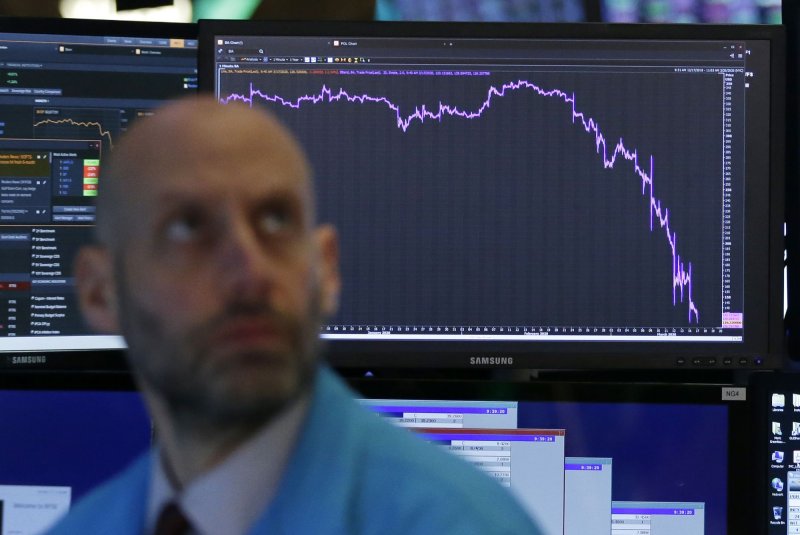Traders work on the floor of the New York Stock Exchange at the opening bell on Wall Street in New York City on March 17. Photo by John Angelillo/UPI |
License Photo
March 30 (UPI) -- The World Bank forecast economic growth throughout East Asia, the Pacific and China to drastically slow this year due to the coronavirus pandemic, urging nations to take action now to mitigate the virus' immediate market impacts.
The bank said Monday it was "unusually difficult" to forecast precise projections due to the changing environment but projected growth in developing EAP countries to slow this year to 2.1 percent in the base-line scenario or, in the lower-case scenario, to -0.5 percent, compared to an estimated 5.8 percent in 2019.
In China, the former epicenter of the virus, the bank forecast growth to decline to 2.3 percent in the baseline scenario and to 0.1 percent in the lower-case scenario for this year, compared to 6.1 percent in 2019.
The projections were published in the World Bank's April 2020 economic update for East Asia and the Pacific, where the bank predicted the economic impact on these markets will prevent nearly 24 million fewer people in the region from escaping poverty, defined as making less than $5.50 a day, if the pandemic had been avoided.
If the situation further deteriorates, poverty will expand by 11 million people, it said, compared to its previous estimate that 35 million residents of the EAP region, including 25 million in China, would have escaped poverty this year.
"Countries in East Asia and the Pacific that were already coping with international trade tensions and the repercussions of the spread of COVID-19 in China are now faced with a global shock," said Victoria Kwakwa, vice president for East Asia and the Pacific at the World Bank.
The report is urging nations to implement target fiscal measures, such as subsidies for sick pay and healthcare, to help contain the virus and ensure that the pandemic doesn't cause "long-term losses of human capital."
It also calls for new public-private partnerships to boost the production of key medical supplies and services to ensure financial stability once the pandemic is over as well as for countries to implement the easing of credit to help households and firms withstand the immediate economic shock.
"Countries in East Asia and the Pacific and elsewhere must fight this disease together, keep trade open and coordinate macroeconomic policy," said Aaditya Mattoo, chief economist at the World Bank for East Asia and the Pacific.
The report follows the bank earlier this month announcing a $14 billion package to aid developing nations to fight the virus and shorten their recovery time.
The virus, which has spread to more than 170 countries since it emerged in December, has infected more than 780,000 people worldwide and killed nearly 40,000 people, according to a tracker of medical and government data by Johns Hopkins University.















